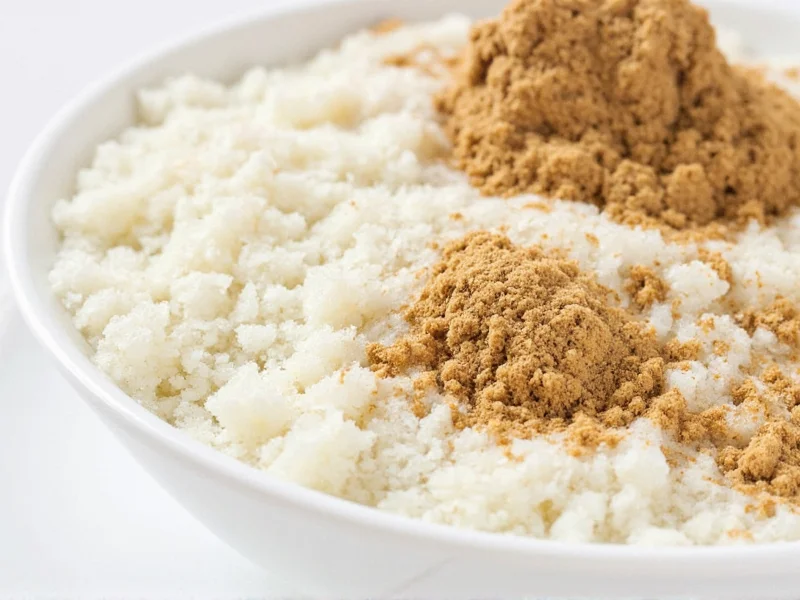Running out of onion powder mid-recipe doesn't have to ruin your cooking plans. Whether you're making soup, seasoning meat, or baking savory dishes, several effective alternatives can maintain your dish's flavor profile. Understanding the right substitution ratios and when to use each option ensures your culinary creations turn out perfectly every time.
Why You Might Need an Onion Powder Substitute
Home cooks frequently seek onion powder alternatives for various practical reasons. You might have simply run out of this pantry staple, need to accommodate dietary restrictions like low-sodium requirements, or desire a fresher flavor profile in your dish. Some recipes benefit from the nuanced taste of fresh alternatives rather than dried powder. Knowing reliable substitutes prevents recipe abandonment and expands your culinary flexibility when creating meals.
Top 5 Onion Powder Substitutes with Conversion Ratios
Each substitute offers unique flavor characteristics and works best in specific applications. Understanding these differences helps you make informed choices based on your recipe requirements and available ingredients.
| Substitute | Conversion Ratio | Best For | Flavor Notes |
|---|---|---|---|
| Fresh yellow onion | 1/4 cup minced = 1 tsp powder | Soups, stews, sauces | Fresher, more pungent flavor; adds moisture |
| Onion salt | 1/2 tsp = 1 tsp powder | Dry rubs, seasoning blends | Salty; reduce other salt by 1/4 tsp per tsp used |
| Shallots | 3 tbsp minced = 1 tsp powder | Delicate sauces, dressings | Milder, sweeter; excellent in French cuisine |
| Leeks | 1/3 cup minced = 1 tsp powder | Creamy dishes, potato recipes | Subtle onion flavor; requires thorough cleaning |
| Garlic powder + pinch of salt | 3/4 tsp garlic powder = 1 tsp onion powder | Meat seasonings, marinades | Stronger flavor; not ideal for subtle dishes |
Fresh Onion Varieties as Substitutes
Fresh onions provide the most authentic flavor replacement for onion powder. Yellow onions work well in most cooked dishes, offering a balanced sweet-to-sharp profile that mellows during cooking. White onions deliver a sharper bite that works particularly well in Mexican cuisine and salsas. Red onions, while colorful, have a more pronounced flavor that might overpower delicate dishes but works beautifully in salads and quick-cooking applications.
When using fresh onions as an onion powder substitute in soup recipes, sauté them first to develop flavor and remove excess moisture. For baking applications like savory muffins or biscuits, squeeze out extra liquid from finely minced onions using a paper towel before incorporating them into your dry ingredients. This prevents unwanted sogginess while maintaining the onion flavor profile you need when you're out of onion powder.
Specialty Substitutes for Specific Applications
Certain cooking scenarios call for specialized onion powder alternatives. For low-sodium diets, try using onion flakes reconstituted in a small amount of water (1 tablespoon flakes = 1 teaspoon powder). The flakes provide concentrated onion flavor without added salt. When making gravy or sauces where texture matters, finely minced shallots offer a smoother consistency than regular onions while providing similar flavor notes.
For those seeking onion powder substitute for baking, consider using a combination of 1/2 teaspoon garlic powder and 1/4 teaspoon dried chives per teaspoon of onion powder. This blend maintains savory depth without overwhelming sweetness that might clash with baked goods. In salad dressings where raw onion flavor would be too harsh, opt for scallion greens finely minced, using a 3:1 ratio to replace onion powder while adding visual appeal.
When to Avoid Certain Substitutes
Not all substitutes work equally well across all applications. Avoid using strong-flavored onions like red onions in delicate cream sauces or custards where their sharpness would dominate. Onion salt makes a poor substitute in dishes already containing significant salt, such as commercial broths or canned soups. When making clear broths or consommés, avoid fresh onions that would cloud the liquid; instead, use a small piece of onion simmered in the broth then removed before serving.
Understanding these limitations helps prevent culinary mishaps when you need an immediate onion powder replacement in soup or other liquid-based dishes. For dry spice blends, powdered vegetable broth mix can work as an emergency substitute, though it lacks the specific onion flavor profile. Always consider your recipe's final texture requirements when selecting a substitute to maintain the intended dish consistency.
Creating Your Own Onion Powder Substitute
For those who frequently need onion alternatives, consider making your own custom blend. Combine equal parts garlic powder, dried chives, and a pinch of ascorbic acid (vitamin C powder) to mimic onion powder's flavor complexity. Store this mixture in an airtight container for up to six months. This homemade alternative works particularly well as an onion powder substitute for baking where precise flavor control matters.
Another effective technique involves dehydrating fresh onion scraps. Save onion ends and skins, dehydrate them at the lowest oven setting until completely dry, then grind into powder. This zero-waste approach creates a personalized substitute that captures your preferred onion variety's essence. While not identical to commercial onion powder, it provides a sustainable solution when planning ahead for future recipes requiring onion flavor.











 浙公网安备
33010002000092号
浙公网安备
33010002000092号 浙B2-20120091-4
浙B2-20120091-4